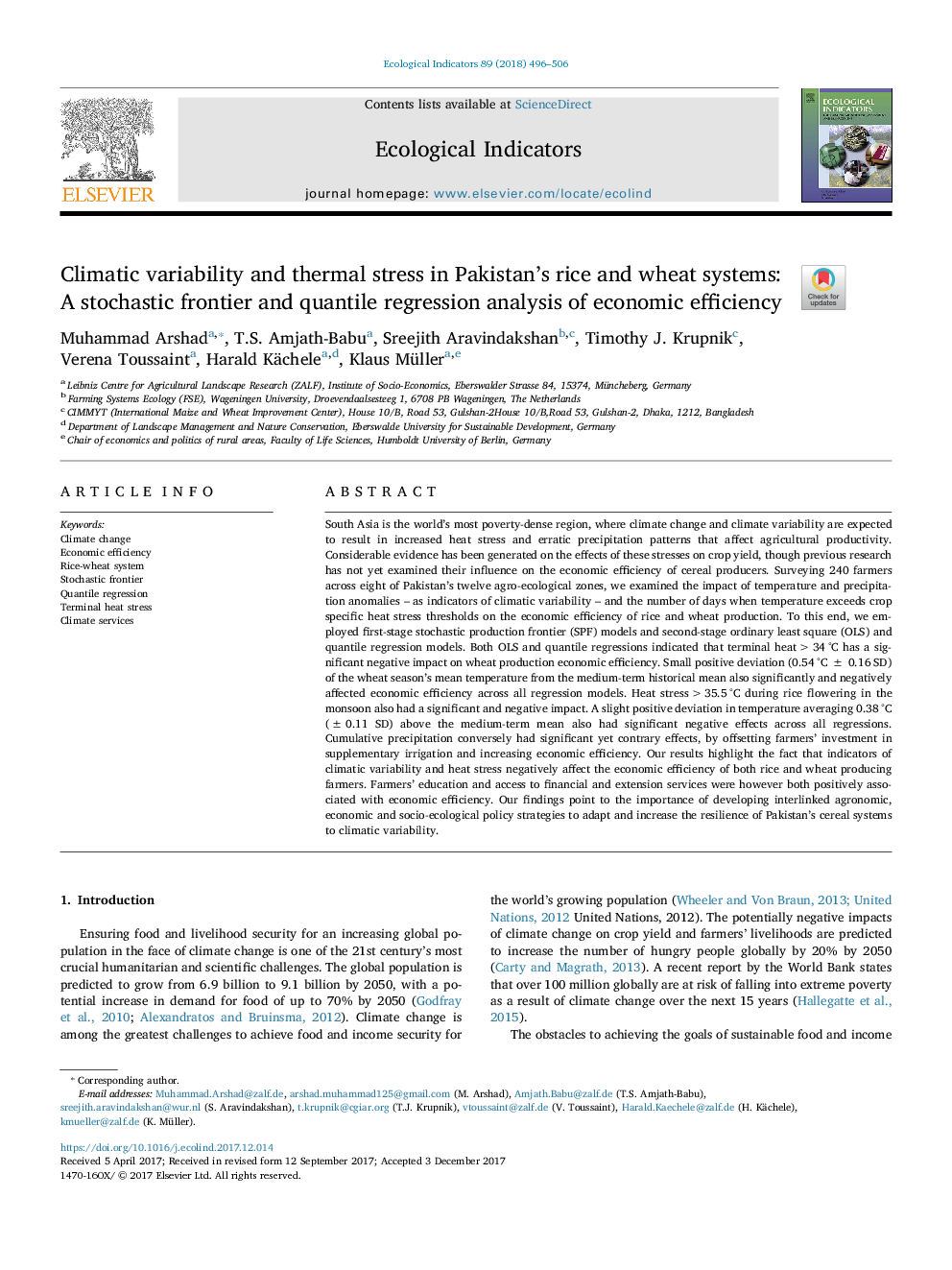ترجمه فارسی عنوان مقاله
تنوع زیستی و تنش گرمایی در سیستم های برنج و گندم پاکستان: یک تحلیل رگرسیون تصادفی و رگرسیون کیفی بهره وری اقتصادی
عنوان انگلیسی
Climatic variability and thermal stress in Pakistanâs rice and wheat systems: A stochastic frontier and quantile regression analysis of economic efficiency
| کد مقاله | سال انتشار | تعداد صفحات مقاله انگلیسی |
|---|---|---|
| 98845 | 2018 | 11 صفحه PDF |
منبع

Publisher : Elsevier - Science Direct (الزویر - ساینس دایرکت)
Journal : Ecological Indicators, Volume 89, June 2018, Pages 496-506

